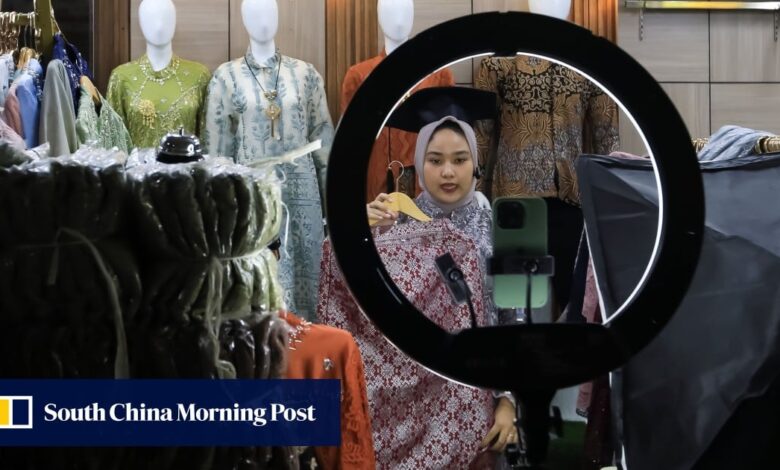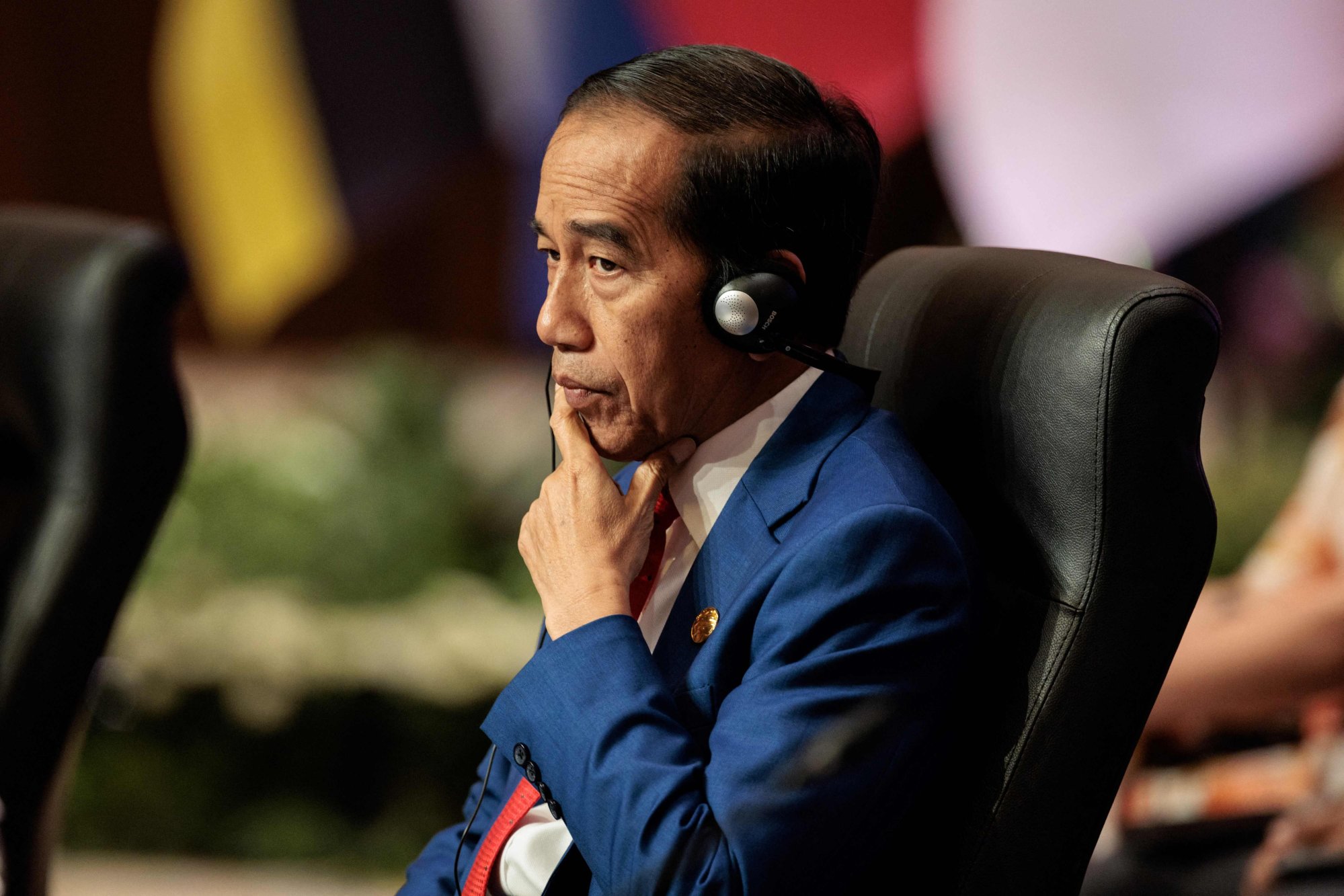Indonesia set to protect small traders as Widodo says social media ‘not a platform for business’

[ad_1]
“What the people are expecting is that the advancement of technology can create new economic potential, not kill existing economies,” he added.
‘Who is this meant to protect?’: sub-US$100 goods import ban divides Indonesia
‘Who is this meant to protect?’: sub-US$100 goods import ban divides Indonesia
While he did not mention any specific companies during Monday’s address, Widodo spoke more directly about the impact of social media giants like TikTok on micro, small and medium-sized enterprises (MSMEs) during a trip to East Kalimantan over the weekend.
“This [social commerce] has affected the production of MSMEs, of small businesses and also of [conventional] markets,” he said. “TikTok should only be a social media platform and not a medium for [conducting] business.”
TikTok has been spending billions to carve out its own slice of Southeast Asia’s lucrative e-commerce pie.

Indonesia accounted for nearly US$52 billion worth of e-commerce transactions last year, according to data from consultancy Momentum Works, with 5 per cent taking place on TikTok, primarily through live-streaming.
In recent months, however, TikTok has been forced to assure the Indonesian government that it would not roll out its “Project S” initiative – to sell its own brand products – in the country.
But Indonesia appeared unconvinced. Deputy Trade Minister Jerry Sambuaga said earlier this month that “social media and social commerce cannot be combined”, vowing to ban the mix of the two as well as citing TikTok’s “live” features which allow people to sell goods.
TikTok to success: will live-streamed Asian marketplace threaten Amazon?
TikTok to success: will live-streamed Asian marketplace threaten Amazon?
In July, Indonesian Trade Minister Zulkifli Hasan announced that the government was working to implement a ban on imported goods worth less than US$100 each – bought via online marketplaces or social media – to protect the country’s MSMEs.
“Unreasonably-priced” goods from abroad threatened to “wipe out” Indonesia’s MSMEs, the Ministry of Cooperatives and Small and Medium-sized Enterprises said in a statement, with minister Teten Masduki adding that foreign goods “at the cheapest possible prices” had flooded the market because controls were “too loose”.
While the move to curb cheap imports has been applauded by many MSMEs, it has also raised concerns around enforcement, with some observers dismissing it as a populist ploy aimed at winning votes ahead of a general election due in February.
Additional reporting by Reuters
[ad_2]
Source link




